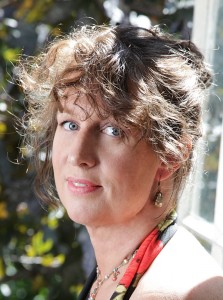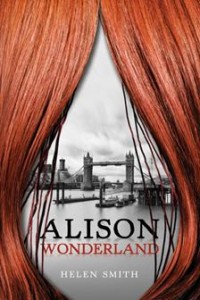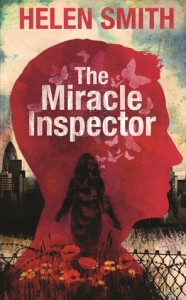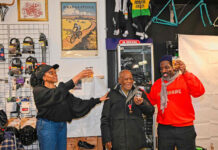 Helen Smith is a novelist and playwright who has lived locally for 20 years and is an active member of the Brixton book scene. Her first novel, Alison Wonderland, is set in the town and reached number one on the Kindle chart in the US. Ahead of the release of her latest book, The Miracle Inspector, she caught up with the Blog’s Barney Evison to talk about Brixton, Brockwell Park and supporting south London’s indie bookshops.
Helen Smith is a novelist and playwright who has lived locally for 20 years and is an active member of the Brixton book scene. Her first novel, Alison Wonderland, is set in the town and reached number one on the Kindle chart in the US. Ahead of the release of her latest book, The Miracle Inspector, she caught up with the Blog’s Barney Evison to talk about Brixton, Brockwell Park and supporting south London’s indie bookshops.
Helen Smith’s first two novels are set in Brixton and draw on her experience of living in the area. Although at points hilarious, her books touch on themes of loss, loneliness and madness in modern London. The plots are surreal, hovering between crime fiction and magic realism, and are narrated with a laconic and often dark sense of humour. Her characters are eccentric, diverse and memorable, but ultimately believable.
In Helen’s first novel, Alison Wonderland, the protagonist joins an all-female detective agency in the centre of Brixton after leaving her husband – Helen tells me that she imagined Alison going to work through Brixton’s Reliance Arcade. Alison’s investigations lead her from secret dungeons beneath Vauxhall to the Cerne Abbas giant in Dorset and she is helped along the way by her psychic postman, inventor neighbour Jeff, and dreamy friend, Taron, whose mother also happens to be a witch. The quirky characters are plunged into a series of absurd situations and the novel’s ending may catch some readers by surprise.
 “I hoped people might continue to think about the book after they’d finish reading it,” says Helen, talking about her choice to end Alison Wonderland on a downbeat note. “If I read a book or watch a film with a sad or downbeat ending, I tend to spend some time afterwards thinking about how it might have worked out better for the characters; I’d love my novels to have a life beyond the time spent reading them.”
“I hoped people might continue to think about the book after they’d finish reading it,” says Helen, talking about her choice to end Alison Wonderland on a downbeat note. “If I read a book or watch a film with a sad or downbeat ending, I tend to spend some time afterwards thinking about how it might have worked out better for the characters; I’d love my novels to have a life beyond the time spent reading them.”
The premise for her second novel, Being Light, came from a story she read in the newspaper about a man in Australia being blown into the air on a bouncy castle. In her book, the incident takes place in Brockwell Park on a windy day. While populated with similar characters, Being Light is a very different novel to Alison Wonderland. Helen believes that her novels get better as they go on, and in Being Light she has cut out a lot of description, deliberately opting for a sense of imprecision in the way she tells the story.
“I like ambiguity,” she says. “They say that when writing a scene for a screenplay you should start late and get out early. I think that holds true for novel writing; I don’t like long descriptions.”
Helen’s novels are often laugh-out-loud funny, and some of the characters downright ridiculous. I asked her whether she found it easier to write humorously. She thinks it’s difficult to write comic scenarios well, but believes that readers may forgive an author more readily if they are made to laugh. For her, writing humorously comes naturally and she chooses to bury the darker themes of her books beneath the apparent comedy.
As well as writing her novels, Helen is an active member of the South London literary scene, participating in events such as the Brixton Book Jam and World Book Night. She has also worked as a mentor for Freedom from Torture‘s creative writing group, ‘Write to Life’, which provides survivors of torture with a creative outlet for their experiences. .
 The Miracle Inspector, her latest novel, is a reflection on social alienation, inspired, at least in part, by the personal accounts of not belonging that she has heard and read during her work with ‘Write for Life’. The Miracle Inspector is set in a dystopian London and the novel explores the feeling of being an unwelcome outsider, once again with her own brand of deadpan humour.
The Miracle Inspector, her latest novel, is a reflection on social alienation, inspired, at least in part, by the personal accounts of not belonging that she has heard and read during her work with ‘Write for Life’. The Miracle Inspector is set in a dystopian London and the novel explores the feeling of being an unwelcome outsider, once again with her own brand of deadpan humour.
With The Miracle Inspector only available as an e-book at the moment, I asked Helen about her choice to publish digitally before bringing out a hard copy. She explains that she’s found it to be great way to generate reviews and buzz around the book, and she’s enthusiastic about the digital publishing revolution as a whole.
“Self-publishing digitally is a bit like punk rock – you don’t need to play an instrument to be in a band,” she quips.
Helen is also keen not to downplay the role of local support to her success as an author and names Clapham Books, Herne Hill books and the Bookseller Crow in Crystal Palace as supportive independent local bookshops which, together with Lambeth Libraries and their Readers and Writers programme, are important hubs in the local literary community.
Helen Smith received an Arts Council Award for The Miracle Inspector, currently available on Amazon.co.uk. She is currently working on what she calls a “slightly camp and very British” murder mystery series about an amateur detective called Emily Castles.
Barney Evison is a regular contributor to the Culture section of the Brixton Blog. Follow him on Twitter at @BarneyEvison.




Thanks, Lesley. You can get hold of the books from the bookshops mentioned (Clapham Books, Herne Hill books or The Bookseller Crow) and you can also get them online. If you buy them, I hope you like them.
All the best
Helen
I like the sound of the first 2 books particularly. I shall have to try and locate copies, though I still prefer the non-digital versions.